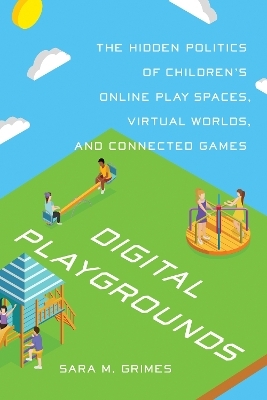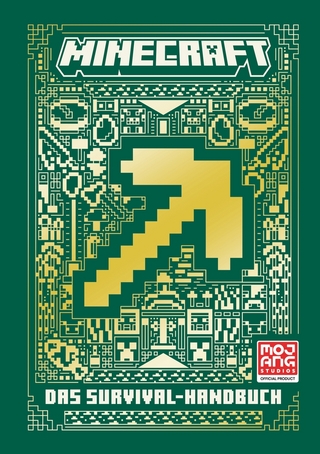
Digital Playgrounds
University of Toronto Press (Verlag)
978-1-4426-1556-4 (ISBN)
Digital Playgrounds explores the key developments, trends, debates, and controversies that have shaped children’s commercial digital play spaces over the past two decades. It argues that children’s online playgrounds, virtual worlds, and connected games are much more than mere sources of fun and diversion – they serve as the sites of complex negotiations of power between children, parents, developers, politicians, and other actors with a stake in determining what, how, and where children’s play unfolds.
Through an innovative, transdisciplinary framework combining science and technology studies, critical communication studies, and children’s cultural studies, Digital Playgrounds focuses on the contents and contexts of actual technological artefacts as a necessary entry point for understanding the meanings and politics of children’s digital play. The discussion draws on several research studies on a wide range of digital playgrounds designed and marketed to children aged six to twelve years, revealing how various problematic tendencies prevent most digital play spaces from effectively supporting children’s culture, rights, and – ironically – play.
Digital Playgrounds lays the groundwork for a critical reconsideration of how existing approaches might be used in the development of new regulation, as well as best practices for the industries involved in making children’s digital play spaces. In so doing, it argues that children’s online play spaces be reimagined as a crucial new form of public sphere in which children’s rights and digital citizenship must be prioritized.
Sara M. Grimes is an associate professor in the Faculty of Information and director of the Knowledge Media Design Institute at the University of Toronto.
Introduction
Digitizing Playgrounds and Technologizing Play
What This Book Is About
Why Looking Back Helps Us Move Forward
Building a Children’s Technology Studies Framework
Chapter Overview
1. The Importance of Digital Play
Conflicting Views of Children’s Play
Conflicting Views of Mediated Play
Licensed Toys and Media Supersystems
Digital Game Controversies and Dichotomies
Dangerous Games and Risky Gamers
Games for “Good” Girls
Bad Game(r)s, Good Game(r)s
Moving Forward
Looking at “Stuff” and Structures
Resituating Children’s Play
Conclusion
2. Small Worlds and Walled Gardens
A Brief History of Children’s Digital Playgrounds
Online Games: Portals, Arcades, and Environments, 2003–2005
Neopets
The Virtual World Boom, 2005–2008
Design Trends and Disparities
Beyond the Computer Screen
Web-Enabled Consoles
Connected Games Go Mobile
Toys-to-Life and Cross-Platform Games
Conclusion
3. Commercializing Play(grounds)
Revisiting Supersystems and Structures
Texts and Contexts
Affordances and Design Limitations
Commercializing Gameplay
The Velvet Rope
Cross-Promotion and Branding
Immersive Third-Party Advertising
Brand Ambassadors
When Stories, Designs, and Commercial Priorities Align
Conclusion
4. From Rules of Play to Censorship
The Primacy of Rules in Digital Games
Design(ed) Rules
Written Rules, Rulebooks, and Codes of Conduct
Who Follows the Rules Anyway?
Why Breaking Rules Is Important
Negotiating Encoded Rules
Children Bending, but Not Breaking, the Rules
Ice Goths and BarbieBoys
Flash Mobs and Copycats
Playing in the Margins of Manoeuvre
Conclusion
5. Safety First, Privacy Later
Children’s Data and Privacy
The COPPA Rule Revised
Reframing Privacy Protections as Safety Mechanisms
Privacy Policies
“Safety” by Design
Safety as a Key Selling Point
Freedom of Expression as a Collateral Cost of Safety
Secret Spaces and “Unsafe” Places
Unsafe and Risky Play
Conclusion
6. Playing as Making and Creating
Playing and Making Digital Games
Children’s Literacy, Agency, and Cultural Rights
Terms of Service, Terms of Play
Who Owns Children’s Content in Digital Playgrounds?
New Creative Opportunities, Same Old Terms
User Rights in Minecraft
Fandom and Fair Use as Consumer Practice
Conclusion
7. The Politics of Children’s Digital Play
Where We Are, and How We Got Here
The (Four) Problems with Digital Playgrounds
Privacy, Secrets, and Selfhood
Censorship and Freedom of Expression
Ownership, Authorship, and Copyright
Commercial Content and Control
The Digital Playground as Public Sphere
Bibliography
| Erscheinungsdatum | 05.07.2021 |
|---|---|
| Zusatzinfo | 8 b&w tables |
| Verlagsort | Toronto |
| Sprache | englisch |
| Maße | 152 x 229 mm |
| Gewicht | 520 g |
| Themenwelt | Mathematik / Informatik ► Informatik ► Web / Internet |
| Informatik ► Weitere Themen ► Computerspiele | |
| Sozialwissenschaften ► Kommunikation / Medien ► Medienwissenschaft | |
| ISBN-10 | 1-4426-1556-7 / 1442615567 |
| ISBN-13 | 978-1-4426-1556-4 / 9781442615564 |
| Zustand | Neuware |
| Haben Sie eine Frage zum Produkt? |
aus dem Bereich


